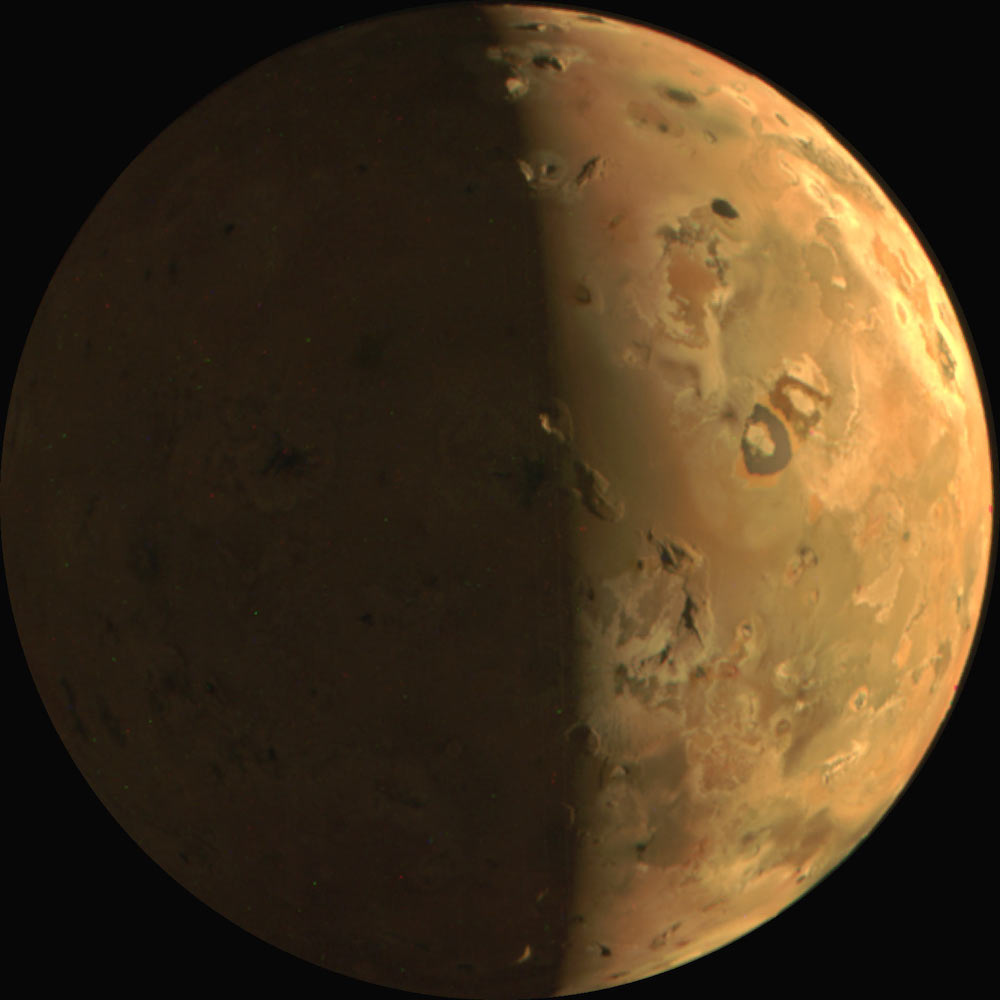A research team led by Catherine De Clare (Caltech) used the Atacama Large Millimeter/submillimeter Array (ALMA) to inventory gases in the thin atmosphere of Jupiter's moon Io. It has been discovered that it contains many more heavy sulfur and chlorine isotopes than the average solar system. This is because lighter isotopes are constantly escaping from the upper atmosphere – a process that has been going on for some time (SciencesApril 18).
Io is the most volcanically active body in our solar system. It is in orbital resonance with two other large moons of Jupiter: Europa and Ganymede. While Ganymede orbits Jupiter once, Europa completes exactly two orbits and Io completes four orbits. This caused Io's orbit to be elliptical rather than circular, changing the gravitational force exerted by Jupiter on this moon.
This results in strongly variable tides, similar to the tides caused by the Moon on Earth. They cause Io's interior to heat up and cause volcanism. Part of the sulfur released into the air disappears under the influence of charged particles Magnetosphere From Jupiter to space. The rest returns to Io's surface to be “reused.”
It turns out that the sulfur that disappears into space is theoretically slightly lighter than the sulfur that gets recycled into Io's interior. As a result, the sulfur remaining on Io becomes isotopic heavier over time, and how heavy it becomes depends on the duration of volcanic activity.
De Clare and her team have now discovered that Io's atmosphere contains much more heavy isotopic sulfur, so much so that in fact it has lost almost all of the original sulfur. Based on numerical models, they concluded that Jupiter's moon was volcanically active billions of years ago and that the current orbital resonance with Ganymede and Europa has existed for a long time. (any)

“Thinker. Coffeeaholic. Award-winning gamer. Web trailblazer. Pop culture scholar. Beer guru. Food specialist.”






More Stories
Grass snake and lizard are rare – Zeeuwsch Vlaanderen Advertisement | Zeeuwsch Flemish Advertising Magazine
Belgian co-production with acclaimed actor Crispin Glover selected for Toronto Film Festival
Sony is rolling out a new PlayStation 5 system update that includes the option to share game invites via URLs.